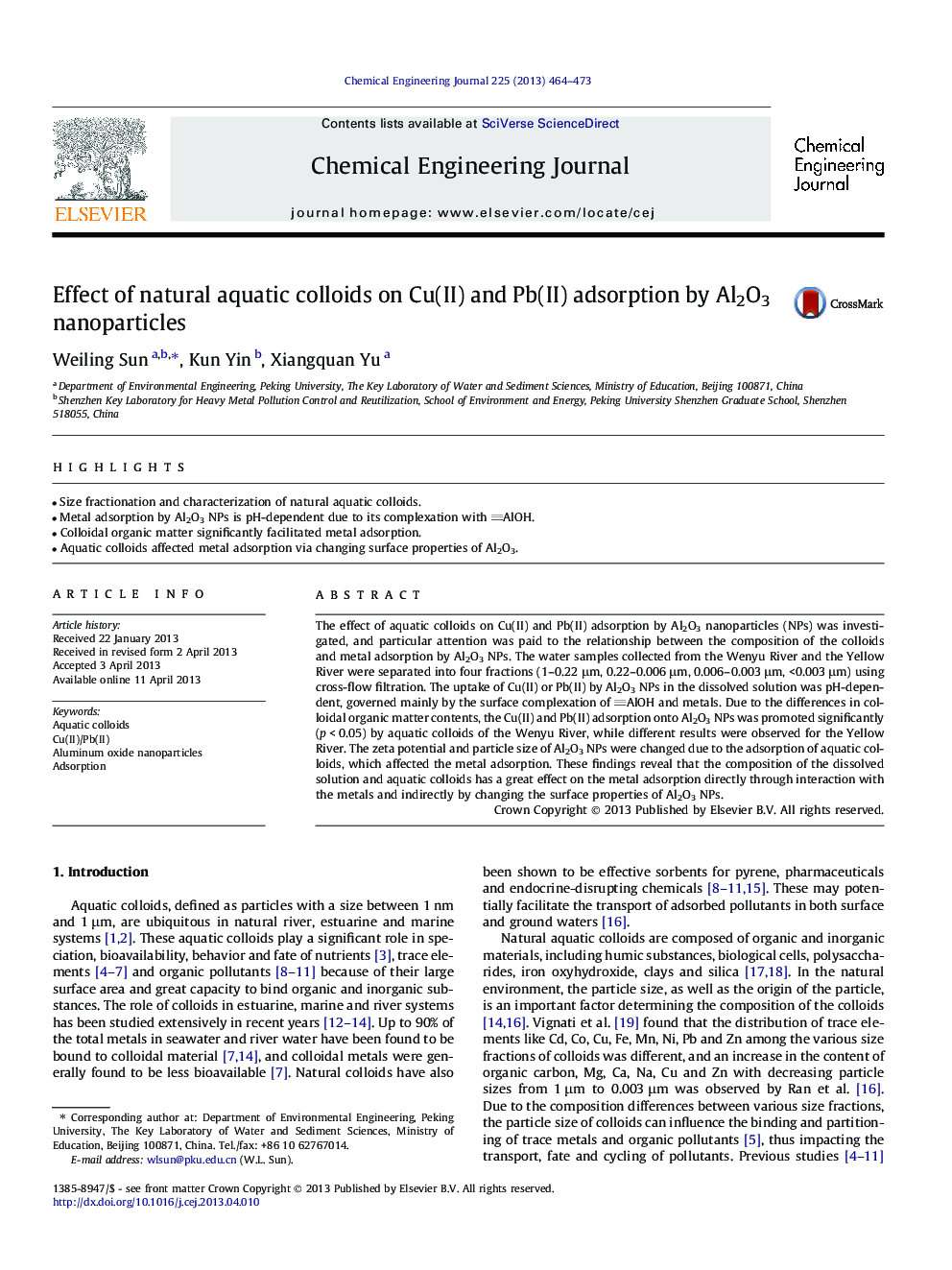| Article ID | Journal | Published Year | Pages | File Type |
|---|---|---|---|---|
| 148698 | Chemical Engineering Journal | 2013 | 10 Pages |
•Size fractionation and characterization of natural aquatic colloids.•Metal adsorption by Al2O3 NPs is pH-dependent due to its complexation with AlOH.•Colloidal organic matter significantly facilitated metal adsorption.•Aquatic colloids affected metal adsorption via changing surface properties of Al2O3.
The effect of aquatic colloids on Cu(II) and Pb(II) adsorption by Al2O3 nanoparticles (NPs) was investigated, and particular attention was paid to the relationship between the composition of the colloids and metal adsorption by Al2O3 NPs. The water samples collected from the Wenyu River and the Yellow River were separated into four fractions (1–0.22 μm, 0.22–0.006 μm, 0.006–0.003 μm, <0.003 μm) using cross-flow filtration. The uptake of Cu(II) or Pb(II) by Al2O3 NPs in the dissolved solution was pH-dependent, governed mainly by the surface complexation of AlOH and metals. Due to the differences in colloidal organic matter contents, the Cu(II) and Pb(II) adsorption onto Al2O3 NPs was promoted significantly (p < 0.05) by aquatic colloids of the Wenyu River, while different results were observed for the Yellow River. The zeta potential and particle size of Al2O3 NPs were changed due to the adsorption of aquatic colloids, which affected the metal adsorption. These findings reveal that the composition of the dissolved solution and aquatic colloids has a great effect on the metal adsorption directly through interaction with the metals and indirectly by changing the surface properties of Al2O3 NPs.
